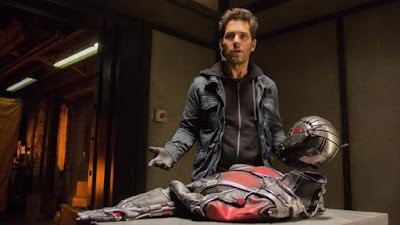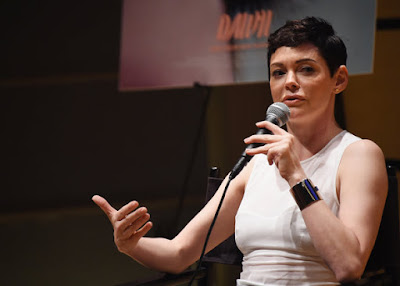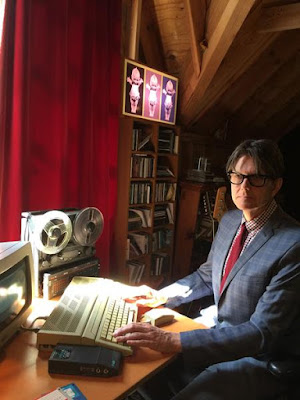 |
| Ant-Man : Our Lovely hero |
Ant-Man" has been skittering around the development corridors of
Hollywood so long, the earliest unproduced screenplays about the tiny
superhero actually preceded the Disney film
"Honey, I Shrunk the Kids."
That was another age (1989), decades before our present Age of Ultron —
an epoch of expensive cheap thrills dictated by the steady, crushing
rollout of so many Marvel movies that even the good ones start to seem
like ants at an endless picnic.
But wait. The "Ant-Man" we have now before us, half-an-inch tall and
played by genial, skillful Paul Rudd, turns out to be better company
than you'd think possible in a multi-strand franchise lousy with
corporate directives.
The plot's the same old thing. Mad, mad,
mad, mad science; imminent apocalypse; parent/child issues; blah blah
blaggidy blah. The tone of "Ant-Man," however, is relatively light and
predominantly comic. Those who feel they need a break from the numbing
destruction of the "Avengers"/"Captain America" movies will likely enjoy
it.
"Ant-Man"
is a frisky hybrid — part "Land of the Giants," part heist film a la
"11 Harrowhouse," but with Rudd leading an army of ants against the
villain, Yellowjacket, played by the excellent character actor Corey
Stoll.
The set-up finds burglar Scott Lang (Rudd) getting released from
three years in San Quentin. His ex-wife, Maggie (Judy Greer, never in a
role big enough for her talent), has custody of their daughter (Abby
Ryder Fortson).
The stepfather figure in the girl's life (Bobby
Cannavale) is a sympathetic cop who doesn't like Lang's rap sheet and
wonders if he'll continue his life of crime.
Lang and his old pals (Michael Pena chief among them) learn of a safe
inside a mansion belonging to some old rich crank, just begging to be
robbed. The crank is one Hank Pym (Michael Douglas, solid if a little
dull), whose big secret involves something called the Pym Particle.
This
enables humans to shrink down to ant size and then back up to human
size, in a flash. Pym targets Lang for the next phase of the experiment,
conducted with the surly but charismatic help of Pym's daughter Hope
(Evangeline Lilly).
The
shrink gimmick of "Ant-Man" is simple and fetching. It may appeal to
the younger segment of the Marvel audience more so than the jaded older
teenagers and adults accustomed to wearying mass slaughter and entire
cities being lifted up in the sky.
The climactic smackdown between Rudd
and Stoll takes place largely on a toy train set, and when director
Peyton Reed cuts away from the close-up action to longer shots, the
effect is very funny, as if a pair of invisible preteens were knocking
around a Thomas the Tank Engine, happily.
We'll never know how much of what works in "Ant-Man" relates to the
input of Edgar Wright ("Hot Fuzz," "The World's End," "Scott Pilgrim vs.
the World"), the first director assigned to the movie. Reed ("Down with
Love") replaced Wright, though Wright retains producer and
co-screenwriting credit, along with Joe Cornish.
The second credited
writing team, Adam McKay and Paul Rudd, presumably took things in a
direction more pleasing to the Marvel folks while adding a few more
jokes. Plus heart! Can't forget the heart. Also there's a cameo from a
back-bench "Avengers" superhero setting up Ant-Man's future screen
appearances.
Time will tell whether a movie such as "Ant-Man," in which conventional
firearms are so rewardingly irrelevant, can find a big audience. But
it's more fun than "Avengers 2."
Cr.
Chicago Tribune,
e-news
,
ข้อมูลอัพเดท




